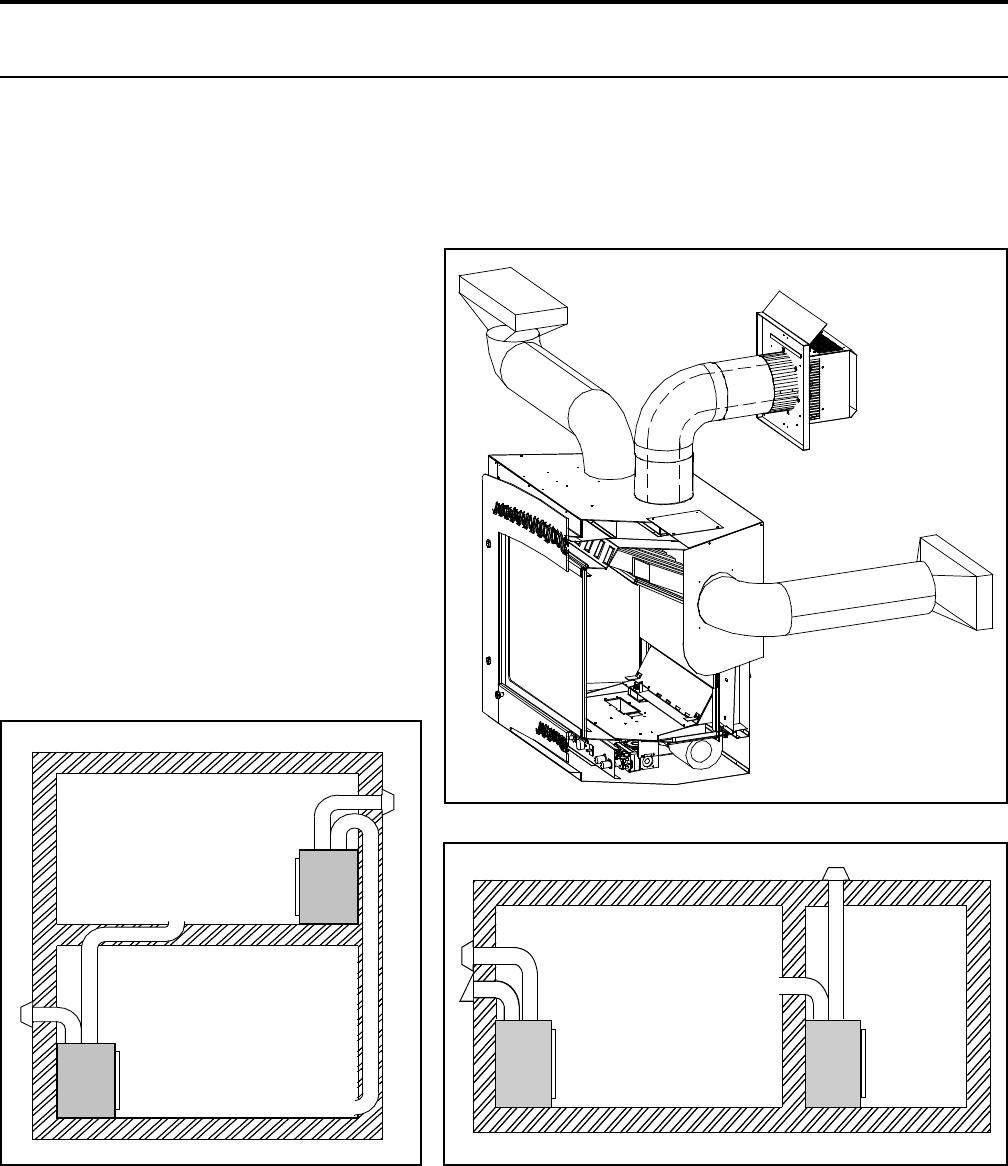
23
For the rst 24 inches (610 mm) of
ducting, inch (13 mm) of clearance
is required. After 24 inches (610 mm),
the duct can be run with 0 inch (0 mm)
clearance, though inch (13 mm) is
preferred. To avoid heat loss, insulate
the duct whenever it passes through an
unheated area (i.e. crawl space). Insulating
the ducts elsewhere helps the efciency of
the ducting system.
Standard galvanized ducting and heat
registers are to be used. Simply remove
the desired cover plate from the outside of
the rebox and attach a 6 inches (152 mm)
starter ring. Make sure to foil-tape all seams
to prevent leaking. Ensure all ducting meets
local building codes.
Figure 28. Ducting Options; ducted from
upper oor to lower oor & from lower oor
to upper oor.
Figure 29. More Ducting Options; ducted to outside & to
another room on an interior wall.
Initial Installation
QUALIFIED INSTALLERS ONLY
DUCTING:
The option of ducting allows heat from the replace to be transferred to a different area. The maximum
total length for the ducting is 20 feet (6.1 m). There are four (4) duct outlets that can be used (see Figure
27), however, the blower puts out 200 cfm no matter how many ducts are used. Therefore, the more
ducts there are, the less air goes through each one. A short, straight duct maximizes its heating ability
as air in the ducts is restricted by the length and number of bends in the pipe.
Figure 27. Heat Dumping Options.
